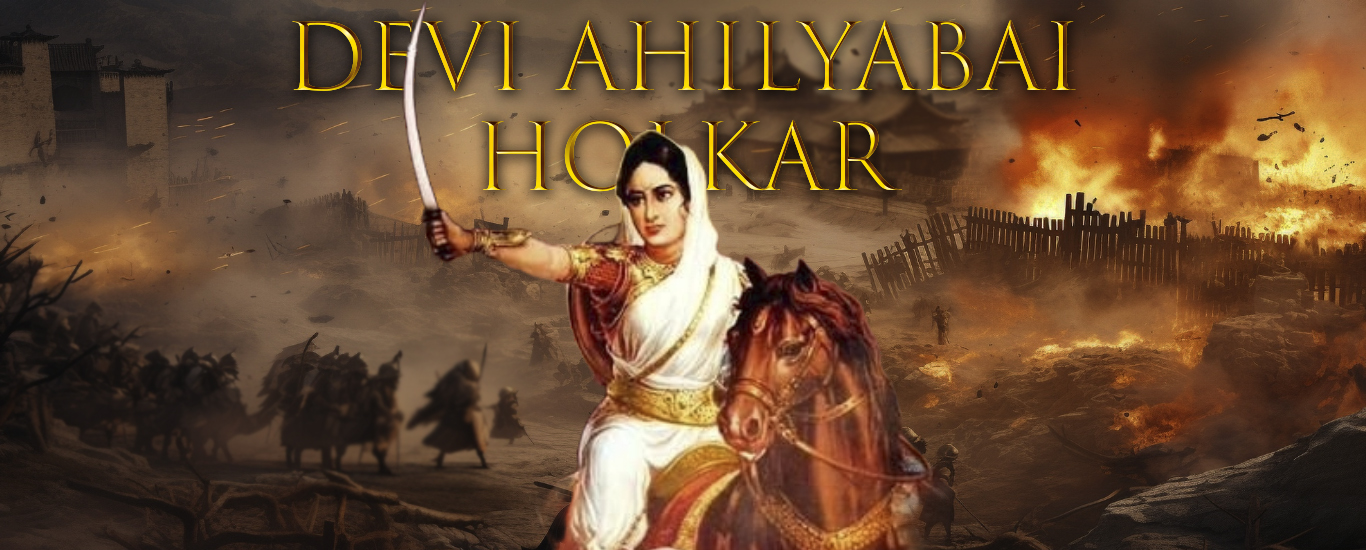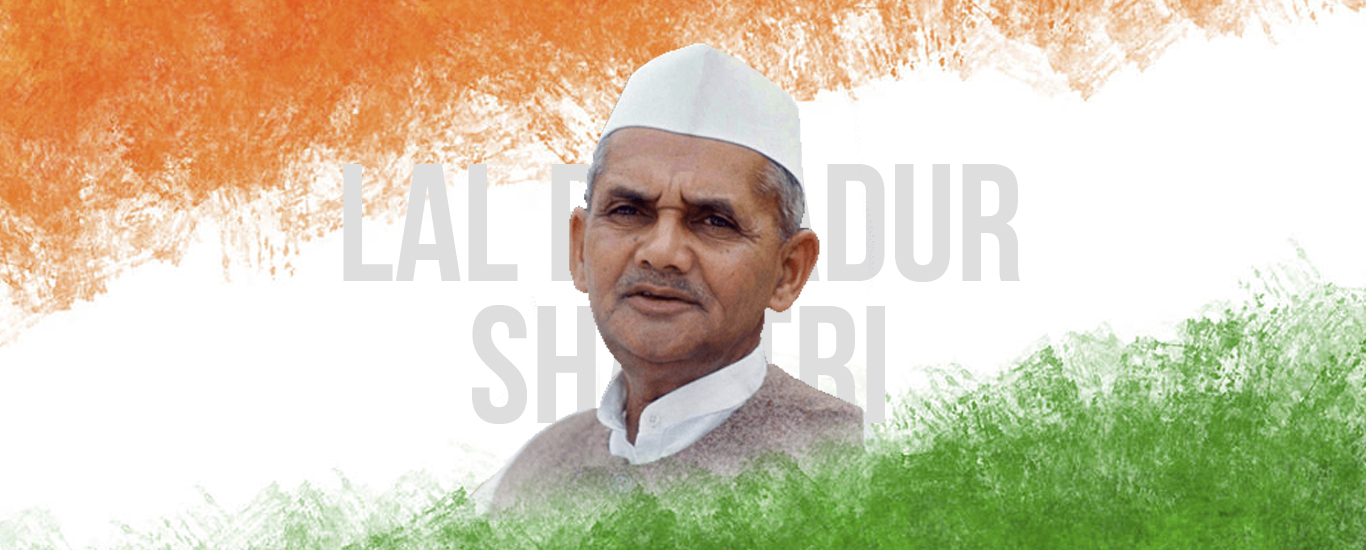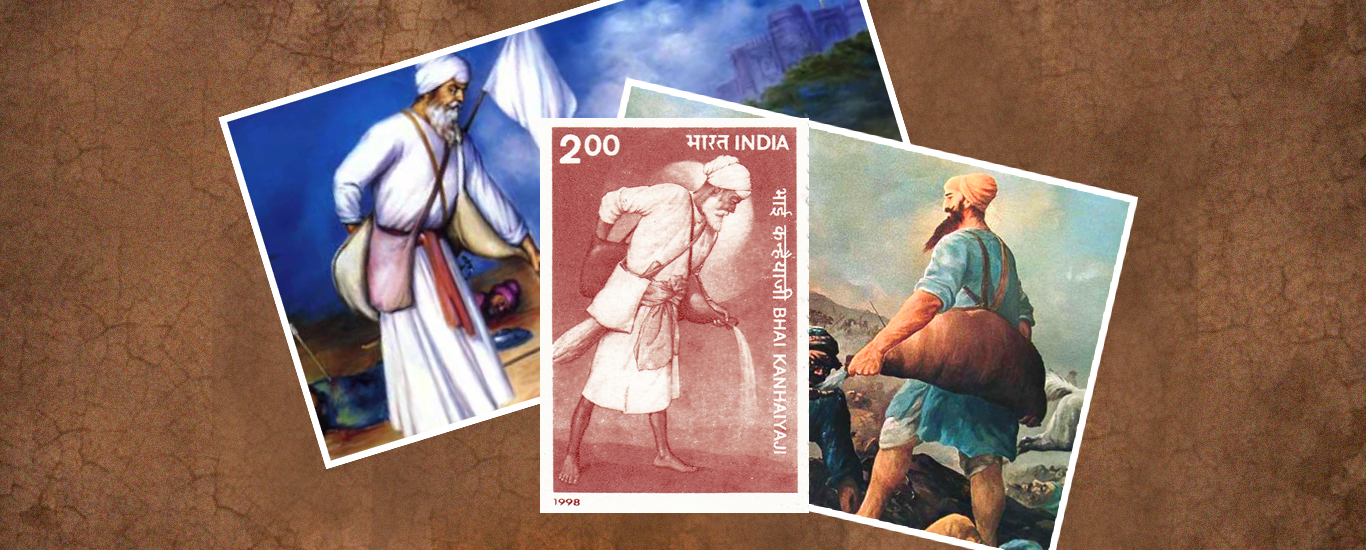Poets and Saints from Uttar Pradesh (UP)
Poetry is a journey which is endless. Poetry generally has certain recognizable characteristics. Poetry is like art itself. It has a way of challenging simple definitions.
Hindu saints have often helped the world, and are mainly called as Gurus, rishis, swamis, sadhus and other names. Several Hindu saints are endowed with god-like status, being seen as incarnations of Shiva, Vishnu and other features of God, at times many years after their deaths.
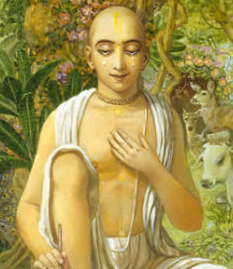
1. Narottama Das
Best known as Thakura Mahasaya, was a Gaudiya Vaishnava saint who was reliable for spreading Vaishnava bhakti across Odisha in and outside of Bengal in India.
The glories of Narottama Das are vast. He became famous for demonstrating deeply loving relationships with his gurus and his friends. He took on the very heavy responsibility of bringing books to Bengal. He is an incredible songwriter like no other.
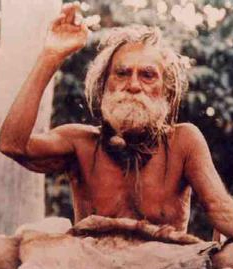
2. Devraha Baba
Devraha Baba was a saint who lived a simple life. He was a saint of Uttar Pradesh and well known all over India as an ‘ageless Yogi’. He was a divine saint. Baba has a lot of knowledge. He had an easy, simple and calm nature. Being a resident of Deoria district in Uttar Pradesh he got the name Devraha. As per some beliefs he was endowed with some divine powers hence he was called as Devaraha Baba by the devotees.
Due to age, yoga, meditation and ability to give blessings, people called him a Sidha Saint. His disciples believe that he lived for 250 to 500 years. The life of Devraha Baba is hidden in mystery.
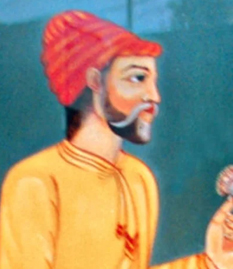
3. Raskhan
A poet, who became a devotee of Lord Krishna, Syed Ibrahim Khan (1548-1628). He was known to have lived in Amroha in Uttar Pradesh, India. Raskhan was his takhallus in Hindi. He became a disciple of Lord Krishna during his early years and captured the bhakti marga from Goswami Vitthalnath. Then he started living in Brindavan and lived his whole life there. He agreed to Lord Krishna as the Supreme God and transformed into a Vaishnav. His demise took place in 1628 A.D. His samadhi is at Mahaban which is situated about six miles east of Mathura.
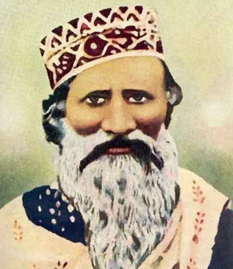
4. Shiv Dayal Singh
Called by the honorific “Param Purush Puran Dhani Huzur Soamiji Maharaj” by his followers and devotees Shiv Dayal Singh Seth, was born on 1818, 24 August in Agra in the colonial era British India now Agra, Uttar Pradesh, India. He died on 15 June 1878 in that city itself. His parents were disciples of a spiritual guru Tulsi Sahib. Shiv Dayal Singh established the Radhasoami movement, a 19th-century spiritual faith.
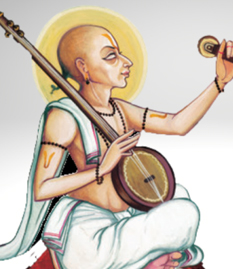
5. Sur
A 16th century blind Hindu devotional poet who was known for his devotion to lord Krishna. During the reign of Akbar, great saint Surdas was born. His passionate description of Krishna’s life in a folk language known as the Braj bhasha, one of the dialects of Hindi are still today a treasure of Krishna’s bhajans.
He is generally considered as having taken his influence from the guidance of, whom he is assumed to have met in 1510. There are a lot of stories regarding him, but most considering he is known to be born blind. Sur Sagar, (Sur’s Ocean) the book is traditionally credited to Surdas. Anyhow, many of the poems in the Sur Sagar seem to be written by later poets in Sur’s name.
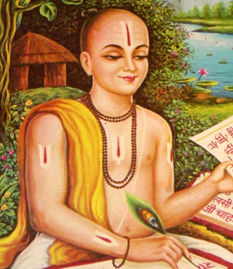
6. Tulsidas
Tulsidas or Goswami Tulsidas was a 16the century great Hindu poet and saint acclaimed as one of the greatest poets in Indian and world literature. He is noted for his dedication and devotion to Lord Ram. The writer of the great book the Ramcharitmanas, a devotional retelling of the Sanskrit Ramayan, based on Ram’s life in the dialect language Awadhi. The word Ramcharitmanas factually means lake of the deeds of Ram. He is also regarded to be the composer of the Hanuman Chalisa, a popular devotional hymn dedicated to Hanuman, the divine devotee of lord Ram.
According to legends Tulsidas was born in 1496 on the banks of the river Ganga in Uttar Pradesh India. So that he is considered as the poet of Uttar Pradesh.
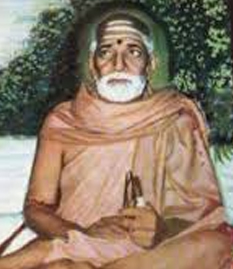
7. Swami Karpatri
Hariharanand Saraswati, commonly known by the name Swami Karpatri or Karpatri ji Maharaj had a very divine life. He was born into a Saryupareen in a Brahmin family in the village called Bhatni in Pratapgarh, Uttar Pradesh, India. He was born as Har Narayan Ojha. In the Hindu Dashanami monastic tradition he was a Sannyasi.
He told his followers to sing the “Ayodhya Tyaga” story of Ramayana for him, on the day of his demise in the year 1980. He recite Sri Sukta himself and during his last breath he kept the idol of Krishna on his chest and closed his eyes by reciting “Shiva Shiva Shiva” thrice.
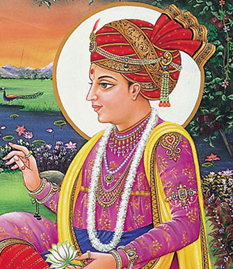
8. Swaminarayan
In the 18th century, a dark period of the country’s history, it was then that the land was blessed with a divine incarnation. He performed extreme austerities and revealed the limitless power of faith and conviction. He educated his followers to rid them of superstitions and enlighten them with faith. Giving is an outstanding example of selflessness with his prayer for all his followers.
He stood up against corrupt practices being followed under the guise of religion. He blessed mankind with peace, happiness and an inspirational path to devotion.
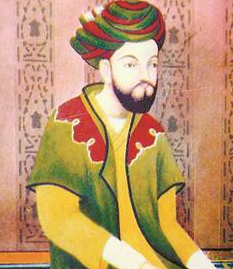
9. Malik Muhammad Jayasi
An Indian Sufi poet, Malik Muhammad Jayasi (1477– 1542). His writings were in Awadhi language, and in the Persian Nasta liq script. Padmavat, an epic poem is his best known work.
Jayasi’s own writings determine two lineages of Sufi pirs who motivated or guided him. The foremost lineage was that of the Chishti leader Saiyid Ashraf Jahangir Simnani (died 1436–37) of Jaunpur Sultanate: as per the tradition, Jayasi’s mentor was Shaikh Mubarak Shah Bodale, who was perhaps a descendant of Simmani. Saiyid Muhammad of Jaunpur (1443-1505) was the next lineage. Shaikh Burhanuddin Ansari of Kalpi was Jayasi’s teacher from this school.
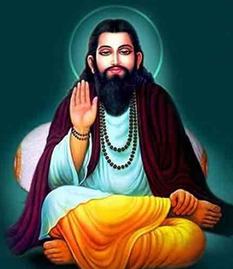
10. Sant Guru Ravidas
Sant Guru Ravidas was a famous saint, sage, poet, social reformer and supporter of god in India. Ravidas was from the Harijan family and that’s what he was going through some taboos. During the 15th to 16th century CE was the time that he found Ravidassia religion. Esteemed as a guru (teacher) in the region of Uttar Pradesh, Gujarat, Rajasthan, Maharashtra, Madhya Pradesh and generally Haryana and Punjab.
Sant ravidas jayanti is celebrated by his followers on Magh Purnima (full moon) in India. People and disciples of Ravidas gather from around the world to Shri Guru Ravidas Janam Asthan Mandir at his birthplace to celebrate the occasion.

